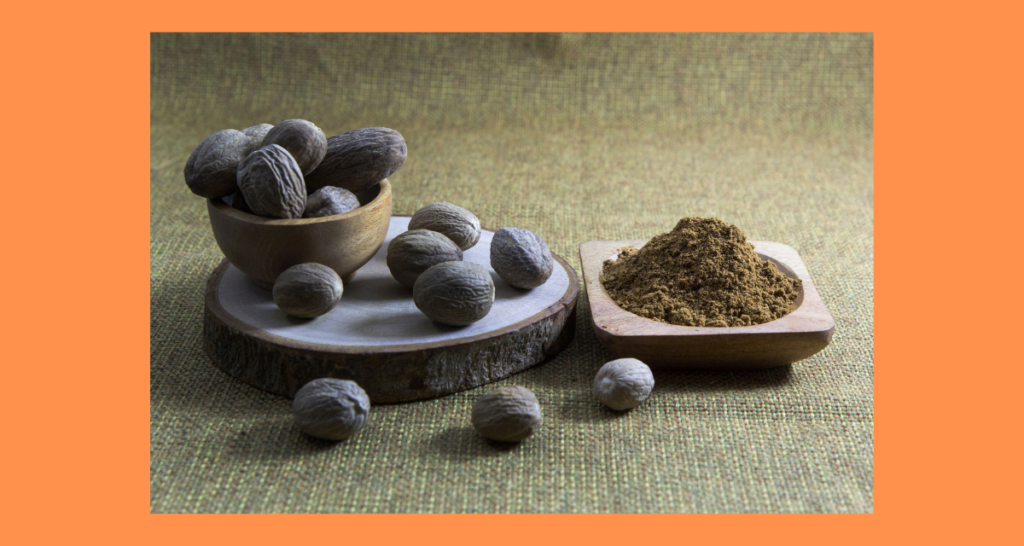In the hustle and bustle of urban life, where deadlines, meetings, and constant connectivity define our daily routine, maintaining optimal health often takes a backseat. Urban professionals are frequently caught up in the chaos, juggling work commitments and personal responsibilities. Amidst this, the ancient science of Ayurveda offers a holistic approach to wellness, tailored to the specific needs and challenges faced by urban dwellers.
Ayurvedic Wellness for Urban Professionals: Balancing Health and Hectic Lifestyles, It provides realistic approaches to incorporating traditional principles of Ayurvedic medicine into the busy lifestyles common today. Keeping the rhythm of Ayurvedic practices, city professionals maintain better health, cope much better with stress, and achieve good harmony among health and daily schedule pressures.

| Section | Details | |
|---|---|---|
| Introduction | It elaborates on the importance of Ayurveda in managing stress and promotion of wellness among urban professionals. | |
| Diet and Nutrition | Focus on a balanced diet, use of herbs like Ashwagandha, and avoidance of processed foods. | |
| Dinacharya | Encourage morning rituals including tongue scraping, oil pulling and yoga for healthy living. | |
| Stress Management | Meditations, Pranayama, Ayurved massages are recommended to reduce stress levels and improve clarity of mind. | |
| Sleep and Rest | This would include warm milk before bed and creating a conducive environment for sleep. | |
| Conclusion | It articulates how one can live a more balanced and healthier life with better balance between work and personal life by incorporating Ayurveda into day-to-day living. |
The Urban Wellness Challenge
Urban professionals often grapple with stress, irregular eating habits, and sedentary lifestyles, which can lead to a variety of health issues. With its roots in traditional Indian medicine, Ayurveda provides a roadmap to navigate the modern wellness challenges faced by those in fast-paced city environments.
Ayurveda’s Holistic Approach
Ayurveda, translated as the “science of life,” emphasizes the balance of mind, body, and spirit. For urban professionals seeking wellness, incorporating Ayurvedic principles can be transformative. Here are key aspects to consider:
Dinacharya in Ayurveda daily routine
Ayurveda advocates for a structured daily routine aligned with natural cycles. Simple practices like waking up early, incorporating meditation, and mindful eating can significantly enhance overall well-being.
Dinacharya in Ayurveda daily routine example:
a. Ayurveda encourages waking up during the “Brahma Muhurta,” which is roughly an hour and a half before sunrise.
b. Upon waking, use a tongue scraper to remove toxins that accumulate on the tongue overnight. This simple practice is believed to enhance oral and digestive health.
c. Drink a glass of warm water to kickstart your metabolism and rehydrate the body. You can add a slice of fresh lemon for added detoxification benefits.
d. You can add a slice of fresh lemon for added detoxification benefits.
e. An example of balanced and nourishing breakfast is, Quinoa Upma with Vegetables and Herbal Tea

f. Ayurveda suggests avoiding heavy meals during the midday period when the digestive fire is naturally weaker. Opt for a lighter lunch and take a short break to relax and rejuvenate.
g. Take a short walk or engage in gentle stretching exercises during the afternoon. This helps in digestion and provides a mental break from work.
h. Enjoy a cup of herbal tea, such as ginger or chamomile, in the late afternoon.
i. Dedicate a few minutes to meditation or deep breathing exercises in the early evening. This practice helps to calm the mind and reduce stress.
j. Have a light and early dinner, allowing at least two to three hours before bedtime.
k. Disconnect from electronic devices at least an hour before bedtime.
l. Aim for 7-8 hours of quality sleep each night.
Balanced Nutrition:
Tailoring Ayurvedic dietary principles to urban lifestyles involves choosing nourishing foods that provide sustained energy. Incorporating Ayurvedic superfoods and herbs into daily meals can bolster the body’s resilience.
Some examples of Balanced nutrition are:
a. Turmeric/हल्दी in Morning Smoothies

b. Ghee with Breakfast Grains(oatmeal/जई का दलिया or quinoa/बथुआ )

c. Ashwagandha-infused Tea or Coffee / अश्वगंधा युक्त चाय या कॉफ़ी

d. Ayurvedic Green Smoothie(spinach, kale, cucumber, mint,spirulina or chlorella)

e. Steep Triphala, an Ayurvedic herbal blend, in warm water and consume it before bedtime/त्रिफला, एक आयुर्वेदिक हर्बल मिश्रण, को गर्म पानी में भिगोएँ और सोने से पहले इसका सेवन करें

f. Mix chia seeds/चिया बीज with amla (Indian gooseberry) for a quick and energizing snack. Chia seeds provide a good source of omega-3 fatty acids, while amla is rich in Vitamin C and antioxidants.

g. Infuse water with fresh tulsi leaves for a refreshing drink. Tulsi is considered a sacred herb in Ayurveda and is believed to have adaptogenic and immune-boosting properties.

Stress Management (Pranayama and Meditation):
Baba Ramdev emphasizes the importance of yoga and pranayama (breathing exercises). Even a few minutes of daily practice can significantly improve your overall well-being. Simple asanas (postures) like Surya Namaskar (Sun Salutation) and Kapalbhati can be done at home or in a quiet corner of your workplace.
Begin your day with a session of Anulom Vilom pranayama. Find a comfortable seated position, close your eyes, and focus on your breath. Inhale deeply through your left nostril, then close it with your ring finger while exhaling through the right nostril. Alternate between nostrils, maintaining a slow and controlled breath. Practice for 10-15 minutes to oxygenate your body and calm the nervous system.

Yoga for Urban Living:
Chair Pose (Utkatasana): Stand tall, feet hip-width apart. Inhale, reach arms overhead, and sit back into an imaginary chair. Engage core and hold for 30 seconds, promoting strength and focus.

Seated Forward Bend (Paschimottanasana): Sit on the edge of your chair, hinge at the hips, and reach forward. Hold for 20 seconds to stretch the spine and release tension in the lower back.

Seated Spinal Twist (Ardha Matsyendrasana): Sit tall, cross one leg over the other, and twist towards the back of your chair. Hold for 20 seconds on each side, promoting spinal mobility and alleviating stiffness.

The 10th International Day of Yoga, observed on June 21, 2024, celebrates the transformative practice of yoga. This year’s theme is “Yoga for Self and Society.” Yoga represents the harmony of mind and body, integrating physical, mental, and spiritual well-being. It brings peace to our hectic lives and offers holistic health benefits. The Permanent Mission of India to the UN, in collaboration with the UN Secretariat, organizes the event at the UN Headquarters in New York. Let’s embrace the power of yoga!
Customized Ayurvedic Plans:
Each individual is unique, and Ayurveda recognizes this diversity. Consulting with an Ayurvedic practitioner can provide personalized wellness plans tailored to an urban professional’s specific constitution and lifestyle.
Benefits of Pranayama:
Pranayama enhances blood flow, benefiting overall health and vitality. Regular practice helps manage stress, anxiety, and promotes relaxation. Pranayama supports the autonomic nervous system, which regulates involuntary bodily functions. Seniors can use pranayama to manage pain or complement medical treatment
Incorporating Ayurveda into Urban Lifestyles
Start with Small Changes:
Implementing Ayurvedic practices doesn’t require a drastic overhaul of one’s routine. Small, consistent changes, such as introducing herbal teas or taking short breaks for deep breathing, can make a significant impact over time.
Mindful Eating Habits:
Urban professionals can benefit from adopting Ayurvedic guidelines on mindful eating, such as eating in a calm environment, savoring each bite, and choosing foods that align with one’s dosha (Ayurvedic constitution).
Drink Warm Water: Ayurveda emphasizes caring for your digestive system. Instead of ice-cold water, opt for warm water. It aids digestion and overall health.
Align with Your Dosha:
Understand your Ayurvedic constitution or dosha (Vata, Pitta, Kapha) to choose foods that harmonize with your unique balance. For instance, Vata types may benefit from warm, grounding foods, while Pitta individuals may find cooling and hydrating options supportive.
Work-Life Balance:
Ayurveda underscores the importance of a balanced life. Urban professionals can incorporate self-care practices, such as setting boundaries for work hours, to maintain a healthy work-life equilibrium.
Mindful Tech Habits: Nurturing Mental Health in a Digital World
In the whirlwind of urban life, Ayurvedic wellness offers a beacon of balance and health. Urban professionals can embrace the timeless wisdom of Ayurveda to harmonize their demanding lifestyles with holistic well-being. They can cultivate resilience, manage stress, and foster a lasting sense of vitality by weaving Ayurvedic principles into their daily routines. As the journey towards Ayurvedic wellness unfolds, urban professionals may discover a profound transformation, aligning their urban existence with the timeless rhythms of nature.
The reference for the blog post, Ayurvedic Wellness for Urban Professionals: Balancing Health and Hectic Lifestyles is taken from LIFEHACK, blog post Ayurvedic Spas Are the Perfect Wellness Choice for Urban Life in Delhi.
The @urbanayurvedalife has about 600 followers on Instagram.

Q1. What is Ayurveda, and how is it relevant to urban professionals?
A1. Ayurveda is an ancient Indian system of medicine focused on balancing the mind, body, and spirit through natural remedies and lifestyle practices. For urban professionals, it provides sustainable methods to manage stress, enhance energy, and maintain overall well-being.
Q2. How can urban professionals incorporate Ayurvedic practices into their busy schedules?
A2. Urban professionals can start with simple practices such as:
Following a daily routine (Dinacharya)
-Eating fresh, seasonal, and balanced meals
-Practicing mindfulness and yoga
-Using Ayurvedic herbs like Ashwagandha for stress relief
-Drinking warm water with lemon in the morning
Q3. What are some Ayurvedic remedies for managing work-related stress?
A3. To manage stress, Ayurveda recommends:
-Abhyanga (self-massage with warm oil)
-Meditating daily for 10-15 minutes
-Taking adaptogenic herbs like Brahmi and Ashwagandha
-Practicing Pranayama (breathing exercises)
Q4. Are there specific Ayurvedic diets for urban professionals?
A4. Yes, Ayurveda suggests diets based on your body type (Dosha: Vata, Pitta, or Kapha). In general, urban professionals can focus on eating warm, easily digestible meals, avoiding processed foods, and including herbs like turmeric and ginger to improve digestion and immunity.
Q5. Can Ayurveda help with sleep issues caused by a hectic lifestyle?
A5. Yes, Ayurveda can help improve sleep through practices like:
-Drinking warm milk with nutmeg or turmeric before bedtime
-Practicing calming rituals like foot massage with oil
-Using essential oils like lavender or sandalwood for relaxation
Q6. What role does mindfulness play in Ayurvedic wellness?
A6. Mindfulness is central to Ayurveda as it helps bring awareness to your daily habits, food choices, and emotional health. Regular mindfulness practices like meditation and yoga enhance mental clarity and reduce stress.
Q7. Are Ayurvedic treatments safe for everyone?
A7. Ayurvedic treatments are generally safe when followed correctly, but it’s essential to consult a qualified Ayurvedic practitioner, especially if you have specific health conditions or are taking other medications.
Q8. What are some popular Ayurvedic herbs for urban professionals?
A8. Some beneficial herbs include:
–Ashwagandha: Reduces stress and boosts energy
–Brahmi: Enhances memory and focus
–Tulsi (Holy Basil): Boosts immunity and combats respiratory issues
–Triphala: Aids digestion and detoxification
Q9. How does Ayurveda address digital fatigue?
A9. Ayurveda suggests remedies like:
-Taking frequent breaks to rest your eyes
-Practicing eye exercises
-Applying Triphala eyewash or cucumber slices to soothe tired eyes
-Avoiding screen time 1-2 hours before sleep
Q10. Can Ayurvedic practices improve productivity at work?
A10. Absolutely! Ayurvedic practices such as maintaining a balanced diet, practicing yoga, and taking herbs like Brahmi and Ashwagandha can boost focus, reduce fatigue, and enhance overall productivity.

